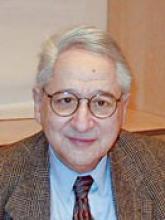In the past, the field of psychocardiology has focused on integrating psychiatric and cardiology care for patients who are at risk for cardiovascular disease because of internal risk factors such as depression, anxiety, hostility, and the stress of decreased economic status. While running a smoking-cessation program several years ago, I was keenly aware of the importance of integrating psychiatric and cardiology care for patients at risk for heart disease. However, in light of the potential impact of psychotropic drugs on the cardiovascular system, we need to learn more and be willing to act on our knowledge.
I took a CME course recently called "Psychocardiology: Treating Mood Disorders While Minimizing Cardiovascular and Metabolic Risks" that proved to be an important review. I was reminded that certain selective serotonin reuptake inhibitors and some first- and second-generation antipsychotics can increase the risk of tachyarrhythmias as well as produce torsades de pointes and its associated increased QT interval potential, which can lead to decreased arterial blood pressure, syncope, ventricular tachycardia, and even sudden death.
In addition, H1-antihistamines, antifungal agents, diuretics, methadone, and certain cardiac medications can increase the QT intervals, thus creating an even more dangerous situation for people with multisystem medical problems who are being treated with a variety of medications. Macrolide antibiotics also fall within this category, which explains the FDA’s recent warning that azithromycin (Zithromax), also known as Z-Pak, can cause abnormal changes in the heart’s electrical activity that could lead to fatal irregular heart rhythm.
The risk further increases for more people with the wider use of some of the newer second-generation antipsychotics now used as mood stabilizers, antianxiety agents, sleep aids, antiaggression agents, and even for conditions such as attention-deficit/hyperactivity disorder. Adding to these risks is the pervasiveness of polypharmacy today, in which multiple medications with the same chemical action are prescribed to the same patient. Unfortunately, this is seen by psychiatrists who see patients in 15-minute medication management visits ("Talk Doesn’t Pay, So Psychiatry Turns Instead to Drug Therapy," New York Times, March 5, 2011), as well as with primary care physicians, who have become an integral part in the treatment of psychiatric disorders.
In this environment, it is even more important than ever that we monitor closely the impact of our treatments on the heart. A review of three placebo-controlled trials by Dr. Raul R. Silva and his colleagues at New York University Langone Medical Center found significant increases in mean heart rate from baseline among children who had been treated with stimulants such as methylphenidate and mixed amphetamine salts. Obtaining a baseline ECG for any patient starting stimulant treatment is reasonable if access for the patient is "readily available and not too costly," they said (Clin. Pediatr. 2010;49:840-51).
SSRIs, the current mainstay medication for depression, are being used for anxiety disorders, including posttraumatic stress disorder, obsessive compulsive disorder, social anxiety, eating disorders, and even pain control. As a result, a larger population is at risk for serious side effects, especially cardiovascular disease, and particularly torsades de pointes. The biggest culprit among SSRIs is citalopram, which explains why the Food and Drug Administration has offered detailed recommendations about the risks of QT prolongation among patients taking that antidepressant.
QT prolongation can develop suddenly and prove life threatening – unlike other complications of past and present psychiatric medications.
Given this increased risk of cardiovascular disease, the best care for patients would be medical/cardiac assessments before they started any psychiatric medications that might lead to prolongation of the QT interval, including ongoing assessments of cardiovascular status as psychiatric medications are continued.
Our role as physicians with expertise in treating mental illness places us in a unique position to read and interpret electrocardiograms and QT intervals for our patients if we are prepared to learn and relearn the skills needed. If cardiologic consultations are not readily available, it would seem that psychiatrists could refer their patients for an ECG, just as we do for routine blood testing, CT scans, or MRIs when appropriate. Unfortunately, we have been reluctant to do so.
In a small study of 64 consultants and trainees in psychiatry asked to complete a questionnaire testing their knowledge, only 62% were able to calculate the heart rate correctly and only 5% calculated the QT intervals correctly using Bazett’s formula, which is still considered to be the most popular correction formula. "We expected that the increased awareness of the cardiotoxicity of psychotropics and interaction between medications would have made psychiatrists more adept at QT interval and ECG abnormality interpretation, but this study indicates that the problem remains," the investigators wrote in the Psychiatrist (2008;32:291-4).


